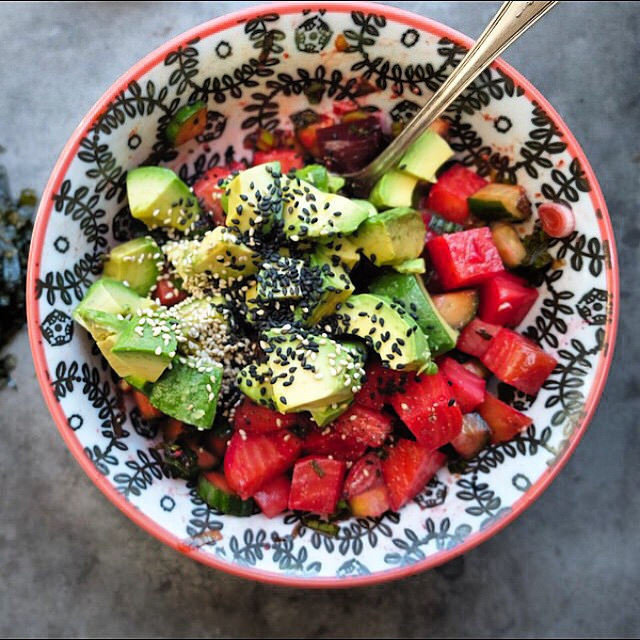As food trends continue to diversify, more restaurants are adding a form of yellowfin tuna, most commonly known as ahi, to their menus. A natively Hawaiian raw fish salad called poke is the latest version of ahi to gain favor among hungry customers. Poke joins an increasingly popular list of raw fish dishes such as sushi, sashimi, and ceviche. While ahi boasts an impressive list of health benefits, the delicacy is not without its cons—in addition to the illness risks of undercooked seafood, yellowfin tuna is also liable to contain high levels of mercury, leaving many people to wonder if poke and similar ahi items are actually safe for consumption.
Aside from the taste, much of ahi’s popularity stems from the nutritional value of the fish itself. In addition to its high protein content, this tuna variety also contains notable amounts of vitamins and minerals such as vitamin D, selenium, and phosphorus. Vitamin D is fairly well known for its role in bone health, but phosphorus also plays a part in the process, working in tandem with calcium to build bones. As for selenium, this trace mineral helps prevent cell damage and maintain immune function after a vaccination.
Image source: andresr
Despite the positive aspects of ahi tuna, health professionals warn against two particular dangers of the fish—foodborne illness and mercury poisoning. Because poke and other ahi tuna dishes are typically served raw or undercooked, food poisoning from bacteria like Salmonella poses a minor risk for symptoms including abdominal pain, vomiting, and diarrhea. To minimize the likelihood of foodborne illness, opt for ahi that has been frozen rather than freshly caught, as the freezing process tends to kill pathogens.
Furthermore, ahi poses a significant risk of mercury poisoning because of bioaccumulation—in other words, mercury levels rise with every step up the food chain. Since yellowfin tuna are a large carnivorous species that eat other fish, as opposed to smaller fish that only eat plankton, they tend to contain higher amounts of mercury. The National Resources Defense Council (NRDC) already lists yellowfin tuna as a species to consume sparingly or avoid altogether. Pregnant women, nursing mothers, and children under the age of six are advised to not consume ahi tuna at all due to heightened risk of toxicity.
Ahi tuna can certainly satisfy your taste buds, but given the risks of both foodborne illness and mercury poisoning, experts suggest minimizing consumption to no more than a couple times a month. If you think you or a loved one is suffering from mercury poisoning, contact the American Association of Poison Control Centers (AAPCC) immediately.
Feature Image Source: Ahi Tuna Salad Bowl by Tracy Benjamin










